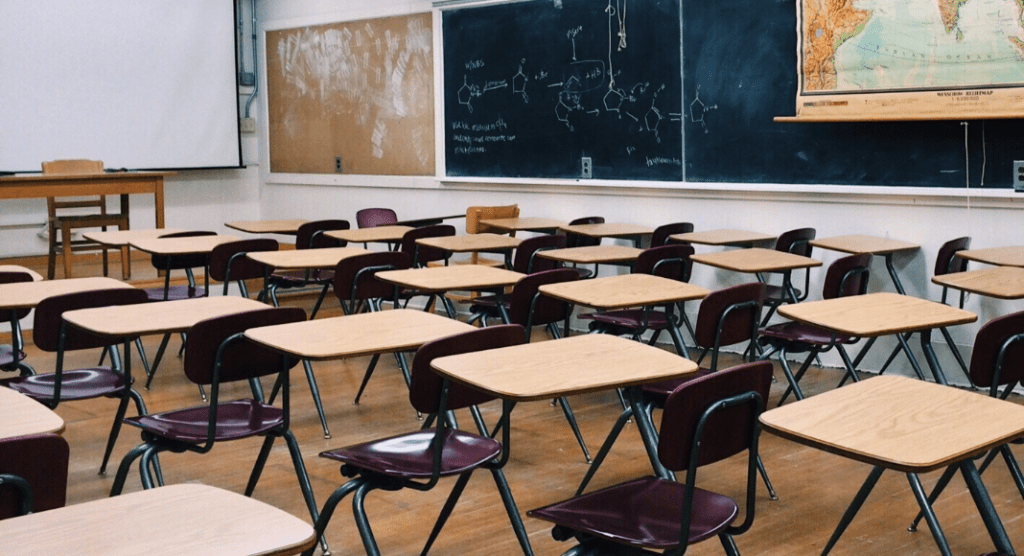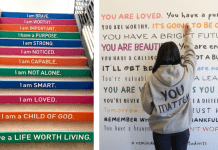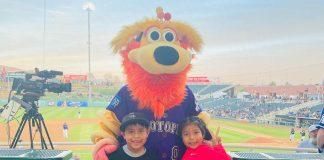Schools Are Communities
When I was growing up, I remember being reminded, many times, that we have two ears and one mouth for a reason. My family taught me to choose my words carefully. I grew up in a small town in rural New Mexico. My graduating class had about 70 kids, and we all grew up together since we were in diapers.
The town I grew up in thrived on the idea that helping your neighbor was helping yourself. Actually, I am pretty sure it was the only way any of us survived.
Most of the families in the town I grew up in lived well below federal poverty guidelines. We did not have options when it came to education. There was one only school in town. The teachers who taught us to read and write grew up with our parents.
However, the more I think about it, our parents were and still are the school. They were our coaches, our volunteers, substitutes, cafeteria workers, chaperones, bus drivers, and booster club members. Our school was no different than our community. While this had both pros and cons, I believe it taught me valuable lessons that still hold true today.
Education Is a Family Value
Not only did I grow up in a small town, but I also grew up with a family that chose the noble profession of educating young people. My mom was and still is a kindergarten and preschool teacher. My aunt taught kindergarten her entire career. She went on to teach and mentor future teachers as a professor at UNM. Her husband, my uncle, served his community as a principal and spent years promoting the value of culture and community within the school systems he managed. My dad coached little league and served on our community school board. His brother is a psychologist and worked in an underserved public school system. It is most likely because of all of their examples that I became a school social worker.
 Being an Educator Is a Sacrifice
Being an Educator Is a Sacrifice
Whether it is because of the way I grew up or because of the examples set forth by my family members, in my heart I know that education is a noble profession. However, I also know it is a sacrifice.
In the town I grew up in, the school not only served residents in town, but it also served students who lived about 25 miles away on a reservation. My friends and neighbors had moms and dads who took the time to drive bus routes in sleet, mud, and snow. They drove routes on unpaved roads to make sure our entire community had access to an education. Many times our coaches (who were all our parents) gave our friends rides home in the same conditions, so they too could participate in after-school activities.
I didn’t always understand the sacrifice of becoming an educator until I too decided to work in a school. When I was growing up, I didn’t understand that working past 3:00 pm, and sometimes late into the night, was not required. Yet, somehow, those school lights burned bright seven days a week and well over eight hours per day.
I didn’t know that not all parents have the luxury or opportunity to coach, run for school board, or raise money so our students could have extracurricular activities. It wasn’t apparent to me because in the community I grew up in, I’m not sure there were any other options.
Our parents, teachers, and our entire community poured into us as young people. They worked long hours, volunteered their time, and decided to become a community with one common goal. It was making sure ALL of the children in our school system had access to a better life and more opportunities.
Now I Too See the Light
Now that I work in a school system I watch my fellow educators do the same things my parents, family, and community did their entire lives. I watch lights burn bright in our schools, way past closing. Teachers still volunteer their time on the weekends and in the evenings.
Many coach our children and work our after-school programs. Our social workers hold mental health clinics and run school-based health centers after hours. Staff run weekend food banks and help man our clothing banks. Many of them do this knowing the sacrifice is spending time with their own children and families.
Growing up, I didn’t think it was odd that our neighbors helped raise us or made sure we were fed, clean, and had homework done when our parents had something to do at the school we went to. Our parents, families, and community understood that our teachers had chosen to take part in shaping who we were to become. Yes, there were disagreements. No, not everyone got along, but families are like that sometimes. That’s what our school was. It was a family. Our community was the school and our community was our family. That meant respecting and honoring the sacrifices made by our parents, families, and our educators. While they were expected to support us as children, we as children and community members were expected to support them as well.
What Has Covid Taught Us?
As a school employee and descendent of a family of educators, COVID has taught me some valuable lessons. It has also brought to life the places in our city where the community is rich and where it is lacking.
COVID has taught us that our community members are innovative, strong, and capable. However, it has also taught us that our communities are divided, at times segregated, and currently suffering through many variants of pain.
COVID has brought out the best and worst in our educational systems. It has shown us where things bend and break easily. However, we must acknowledge that these things were present long before COVID. This pandemic is just an opportunity for those same deficits to come to new light so our communities can come together to work toward solutions.
Never has the need for solutions been more visible. Solutions for our educators, the systems in which they serve, and their communities.
Our school systems have gone through many changes this past year. However, most are still not very different from the school community I grew up in. Schools still function as systems that provide education, community, and care. Our students still depend on our schools for before and aftercare, meals, and transportation. Schools are now also a hub for mental health care and medical care. The lights are still on long after the school bell rings. Our educators still dedicate evenings and weekends to make sure ALL students receive equal opportunities. Summer programming still exists. Most importantly, our schools are still the gathering places for our communities.
This can only mean one thing.
Our schools and educators still need parents and community members to step in and support one common goal: providing the best opportunities for our children.
Growing up in my community taught me valuable lessons. Our parents, educators, schools, and all of the members of our little community helped to raise me and my schoolmates. They all shaped us into who we are today. Some of us are nurses, dentists, judges, commissioners, and teachers. All of us, however, are members of our new communities.
As a school social worker, it is my honor to pass the values I learned growing up, to members of my new community. When I do speak I hope that others hear that there is only one choice when it comes to the education of our young people. We can only choose to educate them one way, TOGETHER.
While my community taught me many beautiful things, I will always remember the most humble of lessons, that we have two ears and one mouth for a reason. We were taught first, to listen to the very heartbeat of the things that brought us together. Our community had to hear one another to achieve common goals. When we spoke, it was on behalf of and for the betterment of everyone. All we had was one another. When I look around, not much has changed.
Our schools, our educators, and our communities have heartbeats that are still speaking. Their needs, trials, and hopes still ring clear.
The question is: are you listening?
Originally published March 2021.
The opinions expressed in this post are those of the author. They do not necessarily reflect the official policy or position of ABQ Mom, its executive team, other contributors to the site, its sponsors or partners, or any organizations the aforementioned might be affiliated with.











